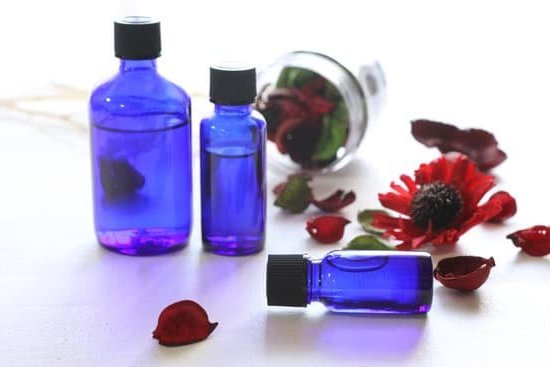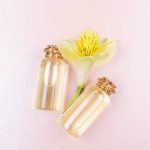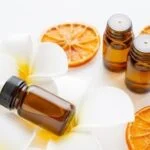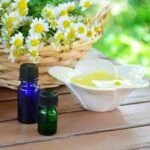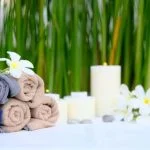Aromatherapy room benefits are gaining popularity for their holistic approach to enhancing overall well-being. The use of essential oils in a dedicated space can have profound effects on mental, emotional, and even physical health. Understanding the power of aromatherapy requires delving into its origins, evolution, and scientific basis.
Dating back centuries, aromatherapy has been used by various cultures for its therapeutic properties. From ancient Egypt to modern-day wellness practices, the use of essential oils has evolved and adapted to different medical and healing traditions. The history of aromatherapy provides a rich tapestry of knowledge that informs its current applications in creating harmonious environments for relaxation and rejuvenation.
Essential oils work through inhalation or topical application to stimulate various responses in the body and mind. The science behind aromatherapy lies in the chemical compositions of these oils, which can trigger physiological reactions that promote relaxation, stress relief, improved sleep quality, and more. By understanding how essential oils interact with our senses and emotions, we can harness their potent benefits in creating an optimal aromatherapy room experience.
A Brief History of Aromatherapy
Aromatherapy has a rich history that dates back thousands of years, with its origins rooted in ancient civilizations such as Egypt, China, and India. The use of aromatic plants and their extracts for therapeutic purposes has been documented in various historical texts and traditions.
In ancient Egypt, essential oils were used in religious rituals, embalming practices, and for their healing properties. The Egyptians are credited with developing some of the first distillation techniques to extract essential oils from plants like cedarwood, myrrh, and frankincense.
The concept of aromatherapy spread to other parts of the world through trade routes and cultural exchange. In China, aromatherapy was integrated into traditional Chinese medicine to treat various health conditions. The Chinese also developed methods for extracting essential oils from herbs like ginger, cinnamon, and peppermint. Likewise, in India, the practice of Ayurveda incorporated the use of essential oils for both physical and spiritual healing.
During the Renaissance period in Europe, interest in botanical medicine flourished, leading to a revival of the use of essential oils for medicinal purposes. The term “aromatherapy” was coined in the early 20th century by French chemist René-Maurice Gattefossé after he accidentally discovered the healing properties of lavender oil on burns. This marked a turning point in the modern evolution of aromatherapy as a recognized holistic practice that promotes overall well-being through the use of natural plant extracts.
The Science Behind Aromatherapy
Aromatherapy, also known as essential oil therapy, is a holistic healing treatment that uses natural plant extracts to promote health and well-being. The practice of aromatherapy dates back thousands of years, with the use of aromatic plants for their therapeutic properties found in ancient civilizations such as Egypt, China, and India. Essential oils are the essence of these plants distilled into highly concentrated forms, each with its unique aroma and potential benefits.
The science behind aromatherapy lies in how essential oils interact with the body. When inhaled or applied to the skin, these potent plant extracts can trigger various physiological responses. The molecules in essential oils can reach the olfactory system in the brain through inhalation, affecting emotions, mood, and memory.
When absorbed through the skin, essential oils can enter the bloodstream and impact different bodily systems. These interactions can help reduce stress levels, improve sleep quality, boost immunity, and alleviate various health conditions.
Research has shown that specific essential oils have antimicrobial, anti-inflammatory, analgesic, and antioxidant properties that contribute to their therapeutic effects. For example, lavender oil is well-known for its calming and soothing properties that can aid in relaxation and sleep.
Peppermint oil has been shown to relieve headaches and improve concentration. By understanding how essential oils work on a molecular level and their interactions with our bodies, we can harness the power of aromatherapy room benefits for our overall well-being.
| Benefit | Description |
|---|---|
| Stress Relief | Essential oils like lavender can help reduce stress levels and promote relaxation. |
| Better Sleep | Aromatherapy oils like chamomile can improve sleep quality by inducing a sense of calmness. |
| Emotional Health | Citrus scents like lemon or orange can uplift mood and promote emotional well-being. |
Setting Up Your Aromatherapy Room
Setting up an aromatherapy room is more than just placing some essential oils in a diffuser. It involves creating a space that promotes relaxation, rejuvenation, and overall well-being. The first step in setting up your aromatherapy room is choosing the right location.
Ideally, you want to pick a room that is quiet, comfortable, and free from distractions. Whether it’s your bedroom, living room, or a dedicated meditation space, the key is to create an environment where you can fully immerse yourself in the benefits of aromatherapy.
Once you have chosen the perfect location for your aromatherapy room, it’s time to think about the decor and ambiance. Consider using soft lighting options like candles or dimmable lamps to create a cozy atmosphere. You can also add elements like plants, crystals, or calming artwork to enhance the sensory experience.
Additionally, investing in a high-quality essential oil diffuser is essential for dispersing the aroma throughout the room effectively. With these elements in place, you can transform any space into a soothing retreat that promotes relaxation and mindfulness.
Incorporating soothing colors like blues, greens, or lavender can help create a sense of calm and tranquility in your aromatherapy room. Remember to keep clutter to a minimum and focus on creating a clean and organized space. By paying attention to these details and personalizing your aromatherapy room to suit your preferences, you can maximize the benefits of aromatherapy for stress relief, better sleep quality, improved mood, and overall well-being.
| Benefits | Details |
|---|---|
| Stress Relief | Aromatherapy can help reduce stress levels and promote relaxation. |
| Better Sleep Quality | Certain essential oils are known for their sleep-inducing properties which can improve sleep patterns. |
| Improved Mood | The scents from essential oils can uplift mood and enhance emotional well-being. |
Top Essential Oils for Aromatherapy
Aromatherapy has gained popularity in recent years for its numerous health benefits and healing properties. Essential oils, which are the main components of aromatherapy, have been used for centuries in various cultures for their therapeutic effects. When used in an aromatherapy room, these essential oils can promote relaxation, improve mood, and even boost overall well-being.
Lavender Oil
One of the most popular essential oils for aromatherapy is lavender oil. Known for its calming and soothing properties, lavender oil is often used to reduce stress and anxiety. In an aromatherapy room, the scent of lavender can create a peaceful atmosphere, making it easier to unwind after a long day. Additionally, lavender oil has been shown to improve sleep quality, making it a great option for those struggling with insomnia.
Peppermint Oil
For a refreshing and invigorating experience in your aromatherapy room, consider using peppermint oil. This cooling essential oil is known for its ability to increase focus and mental clarity. Inhaling the scent of peppermint oil can help alleviate symptoms of fatigue and boost energy levels. Peppermint oil can also aid in relieving headaches and nausea when diffused in an aromatherapy room.
Frankincense Oil
Frankincense oil is another versatile essential oil that offers a wide range of benefits in aromatherapy. This woody and earthy-scented oil is often used to promote relaxation and reduce feelings of anxiety. In addition to its calming effects, frankincense oil can also support respiratory health when diffused in an aromatherapy room.
Its anti-inflammatory properties make it beneficial for easing muscle tension and improving overall well-being. Incorporating frankincense oil into your aromatherapy routine can help you achieve a sense of balance and tranquility in both mind and body.
By incorporating these top essential oils into your aromatherapy room, you can experience the many benefits they offer for your mental, emotional, and physical health. Whether you are looking to relax after a stressful day or improve your overall well-being, using essential oils in an aromatherapy setting can provide holistic support for a healthier lifestyle.
Health Benefits of Aromatherapy Room
Aromatherapy rooms have gained popularity in recent years due to their numerous health benefits, including stress relief, improved sleep, and overall well-being. The use of essential oils in a dedicated space can have a profound impact on both mental and physical health. By creating a calming and invigorating environment, aromatherapy rooms offer a natural way to enhance relaxation and promote better sleep quality.
One of the key benefits of an aromatherapy room is stress relief. Essential oils like lavender, chamomile, and peppermint are known for their calming properties, which can help reduce anxiety and promote relaxation.
The use of these oils in a designated space for aromatherapy can create a soothing atmosphere that allows individuals to unwind and de-stress after a long day. Inhaling these scents can also help lower cortisol levels, the hormone associated with stress, leading to an overall sense of tranquility.
Additionally, aromatherapy rooms can contribute to better sleep quality by promoting relaxation and reducing insomnia symptoms. Essential oils like cedarwood, bergamot, and ylang-ylang have sedative properties that can help induce a state of calmness before bedtime. By diffusing these oils in the air or using them topically, individuals can create a bedtime routine that signals the body it is time to rest.
This gentle approach to improving sleep can lead to deeper and more restful nights, ultimately contributing to better overall health and well-being. Incorporating aromatherapy into your nightly routine can be a simple yet effective way to improve your sleep hygiene without relying on medication.
DIY Aromatherapy Room Recipes
Aromatherapy is a powerful practice that harnesses the therapeutic benefits of essential oils to promote overall well-being. By incorporating different essential oil blends into your daily routine, you can create a soothing and invigorating atmosphere in your living space. Here are some DIY aromatherapy room recipes for different purposes that you can easily create at home:
- Calming Blend: Create a serene environment by blending lavender, chamomile, and bergamot essential oils. This calming blend is perfect for unwinding after a long day or establishing a peaceful atmosphere before bedtime.
- Uplifting Blend: Bring positivity and energy into your space with a blend of citrus essential oils such as lemon, sweet orange, and grapefruit. This uplifting blend is ideal for boosting mood and motivation throughout the day.
- Freshening Blend: Combat odors and purify the air in your home with a refreshing blend of peppermint, eucalyptus, and tea tree essential oils. This blend is perfect for creating a clean and revitalizing environment.
Incorporating these DIY aromatherapy room recipes into your daily routine can have numerous benefits for both your physical and mental health. The aromatic scents of essential oils not only provide sensory pleasure but also have therapeutic properties that can positively impact your overall well-being. Whether you are looking to relax, uplift your mood, or freshen up your living space, these blends offer versatile solutions for different purposes.
By experimenting with different essential oil combinations and adjusting the ratios to suit your preferences, you can personalize the aromatherapy experience in your home. From creating a soothing ambiance for relaxation to promoting focus and productivity, the possibilities are endless when it comes to crafting unique aromatherapy room blends tailored to your specific needs. Embrace the power of aromatherapy room benefits by incorporating these DIY recipes into your daily lifestyle for a healthier and more balanced life.
Aromatherapy Room Benefits for Overall Well-Being
Aromatherapy has been utilized for centuries as a holistic approach to enhance mental and emotional well-being. The use of essential oils in an aromatherapy room can have a profound impact on one’s overall health. By understanding the benefits of aromatherapy on mental and emotional health, individuals can create a more nurturing environment for themselves.
Some of the key benefits of incorporating aromatherapy into your daily routine include stress relief, improved mood, and enhanced relaxation. When essential oils are diffused in an aromatherapy room, they can help to alleviate feelings of anxiety and tension, promoting a sense of calmness and tranquility. This can lead to a reduction in stress levels and an overall improvement in mental well-being.
To experience the full benefits of aromatherapy for mental and emotional health, it is important to create the perfect space for relaxation and rejuvenation. Here are some tips for setting up your aromatherapy room:
- Choose a quiet, clutter-free area where you can relax and unwind
- Use a diffuser to disperse essential oils throughout the room
- Select calming scents like lavender, bergamot, or chamomile
- Incorporate soft lighting or candles to create a soothing ambiance
By creating an inviting aromatherapy room with the right essential oils and ambiance, individuals can enjoy the therapeutic effects that promote mental clarity, emotional balance, and overall well-being. Start incorporating aromatherapy into your daily routine to reap the benefits it offers for a healthier life.
Conclusion
In conclusion, the benefits of having an aromatherapy room in your daily routine can truly enhance your overall well-being. By understanding the power of scent and its effects on our mind and body, you can create a space that promotes relaxation, reduces stress, improves sleep quality, and even boosts your mood. The use of essential oils in aromatherapy has a long history rooted in ancient traditions, but science today continues to support its effectiveness in providing various health benefits.
Setting up your own aromatherapy room doesn’t have to be complicated. By following simple tips for creating the perfect space and using top essential oils with proven benefits, you can easily incorporate aromatherapy into your daily life.
Whether it’s through diffusers, inhalers, or candles, the right blend of essential oils can make a significant difference in how you feel both mentally and physically. The DIY aromatherapy recipes mentioned earlier provide a great starting point for experimenting with different scents and finding what works best for you.
Overall, incorporating aromatherapy into your daily routine is a simple yet effective way to prioritize your mental and emotional health. With regular use of your aromatherapy room, you can experience reduced stress levels, improved sleep patterns, increased relaxation, and enhanced overall well-being. So why not take the step towards a healthier life by embracing the benefits of aromatherapy? Your mind and body will thank you for it.
Frequently Asked Questions
Does Aromatherapy Have Any Real Benefits?
Aromatherapy has been known to have real benefits for some individuals. The use of essential oils in aromatherapy can help reduce anxiety, improve sleep quality, alleviate headaches, and even boost mood. However, the effectiveness may vary from person to person.
What Does an Aroma Room Do?
An aroma room is typically a space designed to enhance relaxation and well-being through the use of scents. By diffusing essential oils into the air, an aroma room can create a calming atmosphere that promotes stress relief and mental clarity. It can be a sanctuary for relaxation and rejuvenation.
Is It Good to Have a Diffuser in Your Room?
Having a diffuser in your room can be beneficial for many reasons. Diffusers help purify the air by releasing essential oils that have antimicrobial properties.
They can also provide aromatherapy benefits such as promoting better sleep, reducing stress, and enhancing mood. Additionally, diffusers can add moisture to the air which can be especially helpful in dry environments or during winter months.

Are you looking for a natural way to improve your health and wellbeing?
If so, aromatherapy may be the answer for you.

